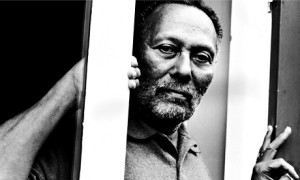This is the obituary of the cultural critic and sociologist published today in The Guardian. A good document that explores some of the same themes that I do in my article on Sam Selvon’s The Lonely Londonders. That is, the ‘familiar stranger,’ a trope that is the inheritance of diasporic peoples from the German sociologist, Georg Simmel. I’d like to link to a document that Hall wrote about the troubles with global capitalism and the New Left, The Kilburn Manifesto: our challenge to the neoliberal victory.
An important part of Hall’s work was in his leadership of the Birmingham School of Cultural Studies (closed in 2002) or British cultural studies. As a member of the Windrush generation, Hall departed Jamaica to attend university in England at Oxford. A Rhodes Scholar, he was in a different category than many other immigrants to Britain after WWII. He was a student-scholar rather than a member of the working class explosion of the immigrant population. However, Hall never kept that aspect of his political commentary far from his own identity and, in fact, embraced the strangeness of his own presence in England.
As I have written elsewhere, Hall made the observation that diaspora is a central part of the intellectual work on race and ethnicity and, as such, is one of the critical sites on which the question of cultural identity is articulated. Here, I cite Hall’s own words:
Having been prepared by colonial education, I knew England from the inside. But I’m not and never will be ‘English.’ I know both places intimately, but I am not wholly of either place. And that’s exactly the diasporic experience, far away enough to experience the sense of exile and loss, close enough to understand the enigma of an always-postponed ‘arrival’ (87).
Hall connects his move from Jamaica to England to Georg Simmel’s concept of the ‘familiar stranger.’ Alienation or deracination is the archetypal post-modern and post-colonial condition: Increasingly, it’s what everybody’s life is like. So that’s how I think about the articulation of the postmodern and the postcolonial. Postcoloniality, in a curious way, prepared one to live in a ‘postmodern’ or a diasporic relationship to identity…Since migration has turned out to be the world-historical event of late modernity, the classic postmodern experience turns out to be the diasporic experience (88).
From Stuart Hall: Critical Dialogues in Cultural Studies. London: Routledge, 1996 as cited in Empire Windrush: Fifty Years of Writing about Black Britain [London: Phoenix Books,1999, ed. and intro. Onyekachi Wambu]
